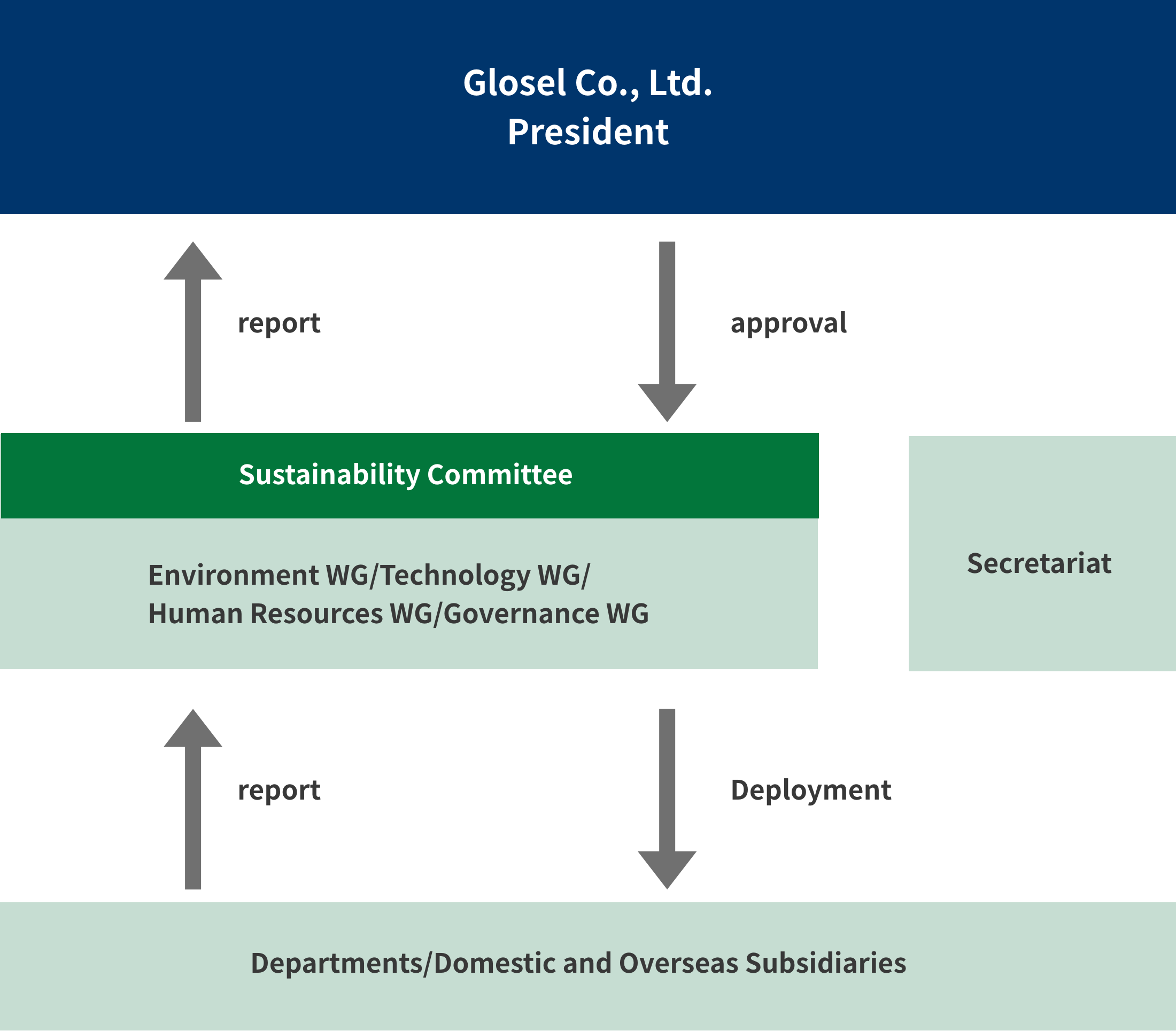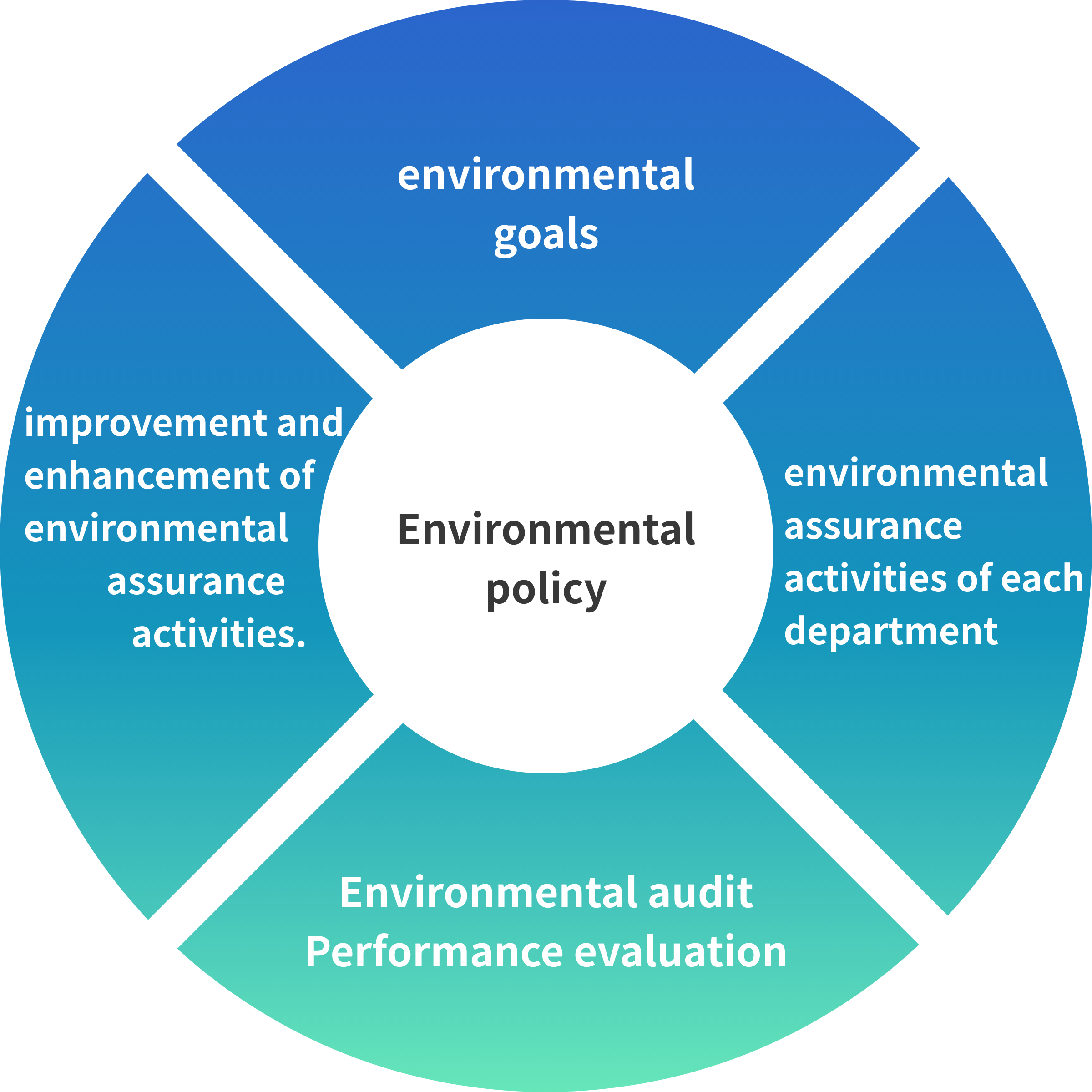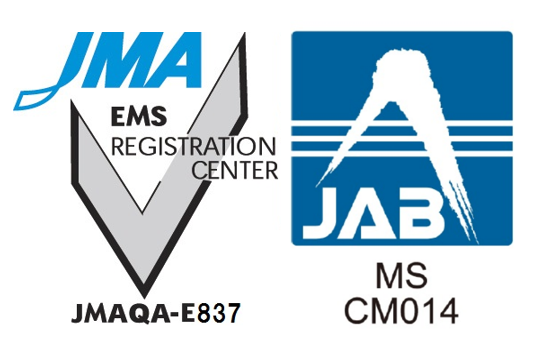-
Company Info
-
Business Information
-
Sustainability
-
IR NEWS
The Glosel Group will value the health of people and the workings of nature, actively engage in improving the global environment, and contribute to the continuous
development of a sustainable society through our business activities as a technology trading company mainly selling electronics products and providing solutions.
The Glosel Group will value the health of people and the workings of nature, actively engage in improving the global environment, and contribute to the continuous development of a sustainable society through our business activities as a technology trading company mainly selling electronics products and providing solutions.
Established: April 21, 2004
Revised: September 1, 2022
The Glosel Group regards climate change-related issues as a key management issue and has established a Sustainability Committee, chaired by the President, Representative Director to discuss policies, risks, opportunities, and strategies. The Sustainability Committee is appropriately managed and supervised by the Board of Directors, and management is actively involved in managing progress. Matters discussed by the Sustainability Committee are regularly submitted to the Management Meeting and the Board of Directors for approval.

At the climate summit (held online) hosted by the United States on April 22, 2021, in light of the decision of the Global Warming Prevention Headquarters, the Japanese government announced that it would aim to reduce greenhouse gases by 46% from fiscal 2013 levels by fiscal 2030, as an ambitious goal consistent with carbon neutrality in 2050, and that it would continue to challenge the 50% level. In response to this, the Glosel Group has also set a carbon neutral reduction target for 2050 and a reduction target of at least 50% for 2030, based on the fiscal year ending March 2022, for the combined total of Scope 1 and Scope 2 market standards. We will continue to promote thorough energy-saving activities and the active use of renewable energy.
Greenhouse gas (Scope 1 and Scope 2) emissions in fiscal 2023 were approximately 197.86 t-CO2, and by scope, Scope 1 30.07 t-CO2,
and Scope 2 167.79 t-CO2.With respect to Scope 2, we have reduced electricity consumption at our head office building from the second half of fiscal 2022 in line with the switch to renewable energy. We will continue our efforts to reduce greenhouse gas emissions.

The Glosel Group uses its environmental management system and other tools to reduce its environmental impact by identifying greenhouse gases, waste, and other outputs from inputs such as energy resources generated by its business activities.
The Glosel Group has established an environmental management system based on ISO14001 as a mechanism to realize continuous improvement in environmental assurance activities. In order to carry out environmental assurance activities in conjunction with the activities of each department (scope: head office/local offices in Japan, Glosel Hong Kong, Easton Works), the environmental management system determines midterm and annual environmental targets, formulates priority measures, and implementation plans to realize them, and reflects these in its business activities. In addition, we conduct internal environmental audits to check the status of initiatives in each department and environmental performance assessments that incorporate environmental aspects into performance assessments to continuously improve and strengthen our environmental assurance activities. Each department also implements a PDCA cycle to continuously improve and strengthen its environmental assurance activities and to promote environmental assurance activities throughout the Group.

The remarkable development of the electronic industry and information technology has made our daily lives comfortable and convenient. At the same time, environmental issues on a global scale have been highlighted, and in the 21 century, environmental efforts have become increasingly important.
While mainly selling semiconductor products and providing solutions to meet customer needs, we obtained ISO14001 certification in September 2004 (scope: head office/local offices in Japan, Glosel Hong Kong, Easton Works), aiming to preserve the global environment as much as possible.
The Glosel Group will strive to improve the environment in accordance with our environmental policy and make efforts to contribute to our customers and society.
Registration organization: Japan Management Association
Registration number: JMAQA-E837
Registration date: September 22, 2004
Registration expiration date: September 19, 2025
Registration revision date: August 19, 2022
Applicable standard: JISQ14001:2015 (ISO14001:2015)

Sales of integrated circuits, semiconductor devices, display devices, and other electronics parts and instruments; software development; design and development of electronic devices; management of manufacturing contractors and technical support; warehouse cargo handling; and packaging and distribution of semiconductor products.
<Offices in Japan>
Head Office, Takasaki Office, Osaka Office, Ibaraki Office, and Sendai Office
<Subsidiary in Japan>
Urawa Logistics Center, Easton Works Co., Ltd.
<Overseas subsidiary>
Glosel Hong Kong Ltd.
As part of its corporate social responsibility to create environmentally friendly products, the Glosel Group is working to reduce environmental impact at the design and development stages of its products. In order to conduct the Environmental Compliance Assessment of our products and the Environmental Impact Improvement Assessment of the product life cycle, we have established the Product Environmental Assessment Implementation Standards and conduct product environmental assessments. Product environmental assessments are conducted in two stages: at the start of development of our products and before the completion of quality certification of our products.
In order to evaluate the performance and effectiveness of environmental ISO standards, the Glosel Group conducts internal environmental audits once a year for all departments subject to certification for the purposes of conformity assessment and effectiveness assessment. The results of internal environmental audits are reported to the President, Representative Director through Management Reviews. For nonconformities and corrective actions, the remedial actions, including minor ones, are managed by a corrective action management chart, and their subsequent effectiveness is evaluated.
The Glosel Group compiles actual data on electricity use and waste on a monthly basis and conducts monitoring and management within the framework of the environmental management system based on ISO14001 (scope: head office/local offices in Japan, Glosel Hong Kong, Easton Works).
The Glosel Group provides general environmental education at least once a year to ensure awareness of environmental policy, significant environmental aspects and their environmental impacts, positive impacts if environmental performance is improved, and compliance obligations.
The Glosel Group promotes social contribution activities with the aim of supporting the development of the next generation of human resources who will be responsible for the sustainable development of the company, as well as developing the local communities where our business activities are conducted. Through these activities, the feeling of being able to contribute to the local community encourages the personal growth of each and every employee, and the connections between people we meet through social contribution activities are a great asset.
Example: Since 2012, we have participated in the activity “collect plastic bottle caps, recycle them, and use the proceeds to vaccinate the world’s children” sponsored by “the Group MATE,” an organization that collects plastic bottle caps. CO2 emissions are reduced by separating and recycling PET bottle caps, and profits from the sale of PET bottle caps collected are donated to the Japan Committee, “Vaccines for the World’s Children (JCV),” a certified NPO, to be used as vaccine money for children in developing countries.